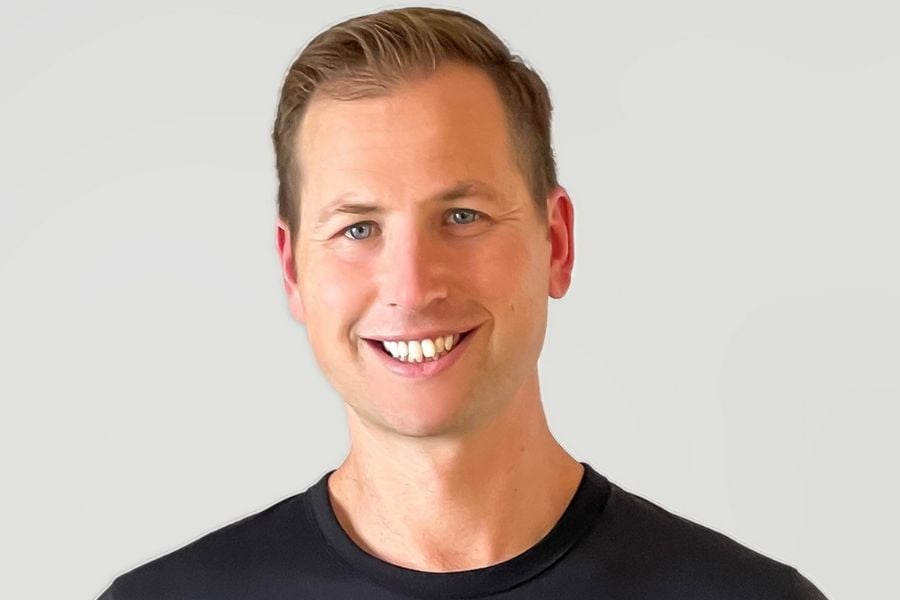

While serving as an officer in the U.S. Army, Brad Genser knew he wanted to find a way into the financial services industry when he returned to civilian life. Both of his parents were insurance agents, and Genser grew up around the table as his parents helped shape their clients’ futures.
How Genser got there is as unconventional as Farther, the digital registered investment advisory firm he co-founded in 2019 that is approaching $1 billion in assets under management.
After the military, the two-time Iraq war combat veteran (he received two bronze stars for his service, according to his bio on the Farther website) decided to build upon the mechanical engineering degree he earned at West Point. Genser earned a Master of Science in mechanical engineering and a Master of Business Administration from Massachusetts Institute of Technology.
He initially relied more on the latter degree, joining Goldman Sachs in 2014 as a wealth advisor focused on ultra-high-net-worth clients.
“I loved what the job was,” Genser told InvestmentNews. “I never wanted to be anything but a great wealth advisor and really serve my clients.”
However, Genser quickly noticed that the firm's technology forced him to spend more time trying to open accounts than actually meeting people. Utilizing his engineering background, he built a program that could ingest public data as well as internal information from Goldman to predict and prioritize business leads and automate some of the initial outreach steps.
“Your life tends to break on funny things,” Genser said, reflecting on how his work computer just happened to provide the kind of programming language he needed to build such a program. “I was able to code this platform out that really helped drive my own personal business.”
The heads of Goldman’s wealth management business took notice, and Genser was soon leading a team of engineers to build out a data and predictive artificial intelligence engine across the entire unit. Then he helped bring it across the entire enterprise.
While he enjoyed his time being a key part of key strategic initiatives at one of the world’s largest financial services firms, Genser saw a greater opportunity to use technology to evolve the wealth management industry by going independent.
Rather than try to piece together a tech stack by integrating a custodian and some third-party vendors — a process that continues to frustrate financial advisors across the industry — Genser and his business partner, Taylor Matthews, built their own digital account opening, financial planning and portfolio management technology. Farther also has partnerships with some third-party companies, such as 55ip for tax optimization, Wealth.com for digital estate planning and Ethic for access to sustainable investing options.
After launching in 2019, Farther crossed the $675 million AUM milestone in April. Growth has come from both recruiting — the firm had brought on 40 advisors as of April — as well as organic growth as those advisors use the technology to grow their business, Genser said.
Genser, who serves as Farther's chief technology officer, calls Farther the “first scalable, client-facing firm.” Wirehouse wealth management businesses were founded to serve corporate interests first, while traditional fiduciary firms simply can’t scale much larger than the biggest firms already have, he said.
Farther can also outpace the growth of direct-to-consumer robo-advisors by emphasizing professionals who can lean into doing what humans do best while letting Farther’s technology handle the rest.
“When people are going through their toughest times — and it can be positive, such as selling a business, or negative, like a client’s parents who just died — the amount of emotional stuff that happens there, [human advisors] shine in those peaks and in those valleys,” Genser said.
Cambridge Associates is the industry’s largest RIA, with $294 billion in assets under management, according to InvestmentNews’ RIA Data Center. But with an estimated $147.7 trillion of wealth in the U.S., even the biggest firms are still small compared to the market opportunity, Genser said. He gets frustrated by what he calls “complacency” and “small thinking” in the industry, and said independent firms should be four times the size they already are.
“We are not serving the opportunity to its full potential. There are people sitting in cash getting eaten up by inflation, people who don’t know what to do with their wealth,” Genser said. “I want our industry to think big.”
While Farther has yet to make it to even $1 billion in AUM, he believes that the technology his team is developing is capable of serving much more.
“We are small, but ultimately our core is sound,” Genser said. “We want to push this industry to serve more clients and serve them better.”

RBC Wealth Management's latest move in New York adds an elite eight-member team to its recently opened Westchester office.

Stifel – so far - is on the hook for more than $166 million in damages, legal fees and settlements in investor complaints involving Roberts, a 35-year industry veteran.

The giant alt investments platform's latest financing led by T. Rowe Price and SurgoCap Partners, along with State Street, UBS, and BNY, will fuel additional growth on multiple fronts.

Some investors recently have seen million dollar plus decisions by FINRA arbitration panels involving complex products decisions go their way.

New report shines a light on how Americans view wealth today.
Orion's Tom Wilson on delivering coordinated, high-touch service in a world where returns alone no longer set you apart.
Barely a decade old, registered index-linked annuities have quickly surged in popularity, thanks to their unique blend of protection and growth potential—an appealing option for investors looking to chart a steadier course through today's choppy market waters, says Myles Lambert, Brighthouse Financial.
